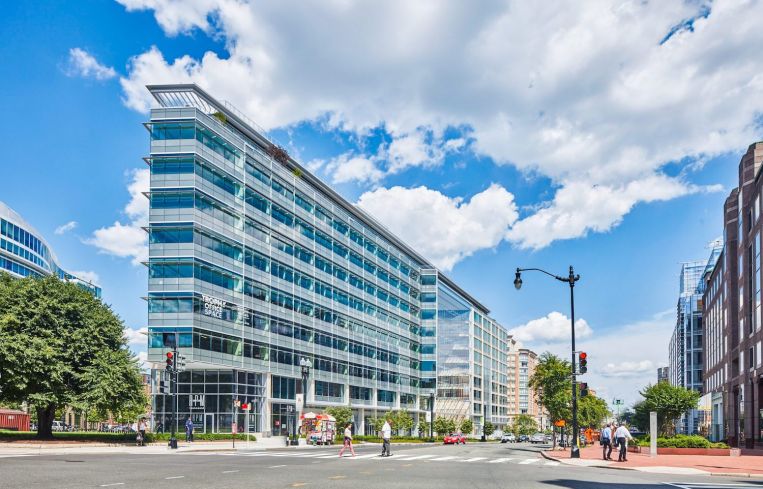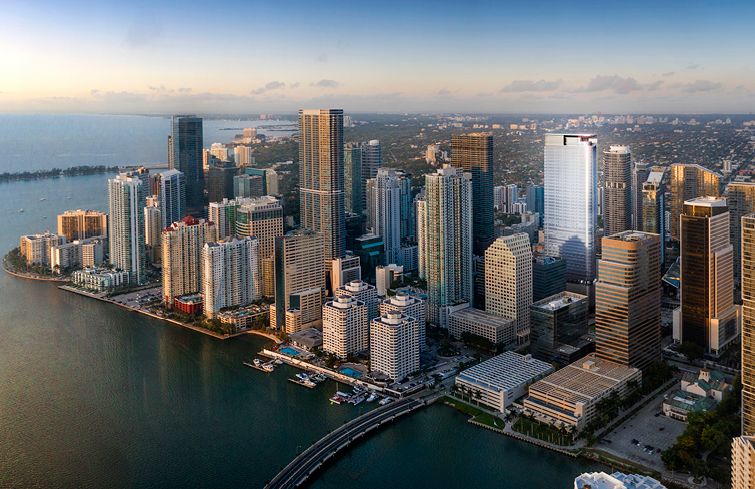Office Vacancy Jumps Nationwide as Rents Slide
Hybrid work drives flight to quality, and tenants look to avoid long-term leases
By Greg Cornfield October 20, 2022 11:10 am
reprints



Demand for office space around the United States has softened the past year, with average asking rents dropping and vacancies spiking in many markets.
A new report from CommercialEdge found the average asking rent was $37.67 per square foot in September, down 2.4 percent year-over-year, and the national vacancy rate was 16.6 percent, 180 basis points higher than in September 2021.
CommercialEdge estimates that 139.1 million square feet of new office supply are currently under construction around the country. But since the COVID-19 outbreak began, the geographic composition of new office construction has shifted, with gateway markets recording the largest declines.
For example, Los Angeles had 3.6 million square feet of office projects start construction in 2019, but this year only 61,000 square feet of non-owner-occupied office space has begun construction. In the same period, newly started projects in Manhattan declined from 3.2 million square feet to just 754,000 this year; and Washington, D.C.’s construction volume dropped from 4.7 million square feet to 1.1 million.
It’s a different story in Miami as many companies relocate to Florida. The city sports a 12.1 percent vacancy rate and its average listing rate has increased 12.4 percent over the last 12 months. 830 Bickell, a 57-floor trophy tower set to be complete this year, is listing more than 185,000 square feet, with leases priced from $83 to $150 per square foot, unusually high for Miami. The building has already inked leases with tenants including Microsoft, which will make the space its new regional headquarters, as well as law firms and asset management companies.
The widespread push around the country toward remote and flexible work schedules has also increased demand for flex office space, and CommercialEdge expects that demand will continue to grow as brokerages take notice and increase their investments in coworking space.
According to CommercialEdge’s report, after investing more than $200 million in Industrious in 2021, CBRE put an additional $100 million into the flex space operator this year. Cushman & Wakefield also entered a strategic partnership with WeWork, investing $150 million. Over the summer, IWG, the parent company of Regus and Spaces, announced it would be adding at least 500 locations in the U.S. with a focus on smaller cities and the suburbs. Newmark bought control of Knotel in 2021, and plans to expand it.
Additionally, JLL’s Future of Work Survey of more than 1,000 real estate decision-makers found that 43 percent of firms plan to increase investment in flex space through 2025.
“Given the flexibility and amenities coworking locations provide, there is real opportunity to align with what corporations are needing in future space decisions,” CommercialEdge’s Peter Kolaczynski said in a statement. “We’re tracking around 120 million square feet of flexible space and expect that number to rise significantly in the future.”
CommercialEdge reported $69.3 billion in U.S. office sales through September, including $13 billion in the third quarter alone. The Washington, D.C., market has been one of the most active with $4.1 billion in office deals so far. For comparison, Washington, D.C., notched $4.5 billion in sales in each of the previous two years.
The highest-priced asset in the D.C. market so far — by both total cost and price per square foot — is 601 Massachusetts Avenue NW, a 478,818-square-foot property that Mori Trust acquired from Boston Properties for $531 million, or $1,109 per square foot. Washington’s average sales price is at $302 per square foot.
Manhattan has completed $5.46 billion for an average of $858 per square foot after three quarters. Miami has completed $1.25 billion at $393 per square foot, and Greater Los Angeles has completed $2.89 billion at an average of $447 per square foot so far this year.
Gregory Cornfield can be reached at gcornfield@commercialobserver.com.



